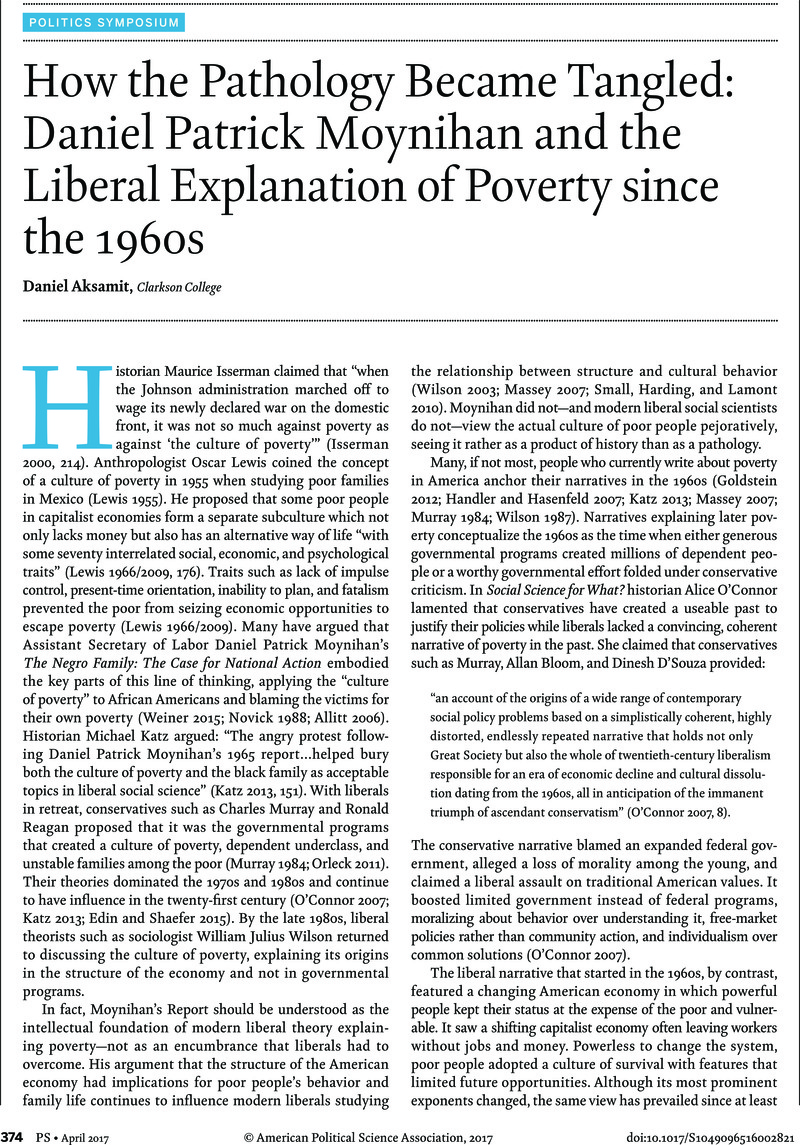Lewis, Oscar.
2009.
“The Culture of Poverty”. In
Gmelch, George,
Kemper, Robert V., and
Zenner, Walter P.,
Urban Life: Readings in the Anthropology of the City, 5th ed
. (pp.
175–
185).
Long Grove, IL:
Waveland Press, Inc. (Reprinted from
Scientific American, 1966, New York: Harold Ober Associates, Inc.)
Google Scholar 